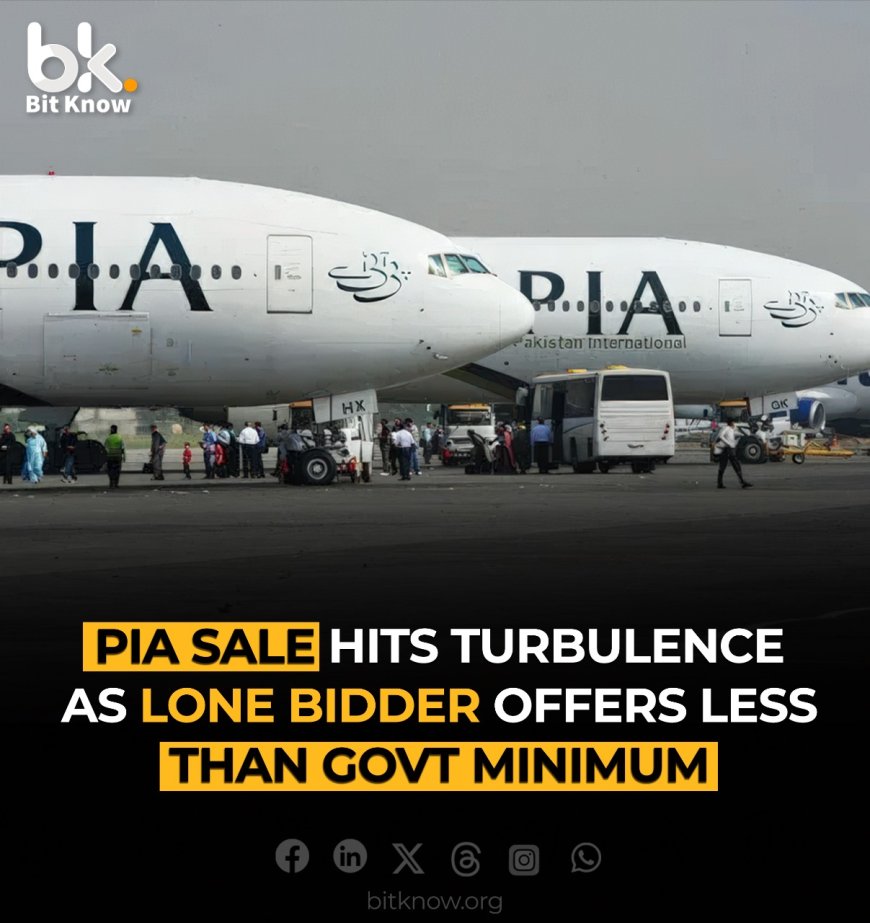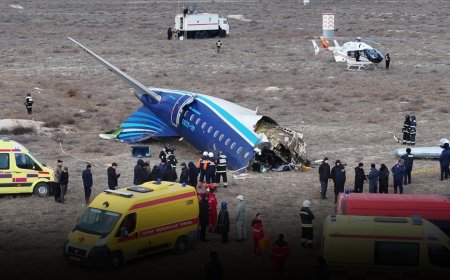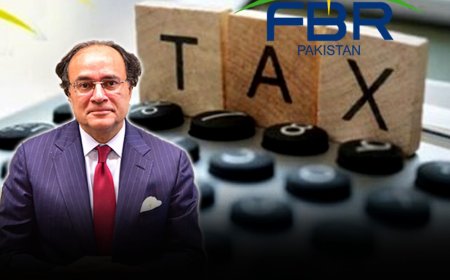PIA sale hits turbulence as lone bidder offers less than govt minimum
Pakistan's attempt to privatize PIA stalled after the lone bidder, Blue World City, offered far below the government's minimum price. PIA's debt, fleet costs, and regulatory hurdles continue to deter investors, leaving the struggling airline under state control amidst broader economic reform pressures.

ISLAMABAD: Pakistan’s latest attempt to privatize its struggling national airline, Pakistan International Airlines (PIA), faced a significant setback on Thursday after the only bidder, Blue World City, refused to meet the government’s minimum asking price of Rs85 billion ($304 million). The bidder proposed just Rs10 billion ($35.8 million) for a 60 percent stake in PIA, outright rejecting any further negotiations, stating, “We cannot offer more than that; the government should run this airline itself.”
This failed bid marks Pakistan's second attempt in a decade to divest its national flag carrier, following a similar effort that fell short in 2015. Despite initial optimism, interest waned due to stringent conditions set by the government. A senior official from the Privatisation Commission noted, “The interest was thin from the outset due to significant conditionalities,” yet the process continued in hopes of a positive outcome.
During the auction, Blue World City’s initial offer was significantly below the government’s disclosed reference price. The Privatisation Commission allowed for a brief recess to reconsider, but the bidder returned with the same offer, maintaining their stance.
Looking ahead, a top official from the Privatisation Commission stated that the findings will be presented to the commission’s Board before being referred to the Cabinet Committee on Privatisation (CCoP) for further discussion, with the final decision resting with the federal cabinet. Given the considerable disparity between the offer and the minimum price, officials anticipate the cabinet will reject the bid and consider restarting the privatization process from scratch.
The collapse of PIA’s privatization comes amid increasing pressure from the International Monetary Fund (IMF) for Pakistan to reform its fiscal policies. As part of an IMF loan program, Pakistan committed to divesting state-owned enterprises like PIA to stabilize its economy. Although the IMF had expected the sale to conclude by September, the government repeatedly postponed the auction deadline—from August 14 to October 1, then to October 31—reflecting a lack of investor interest.
Initially, six groups showed interest in acquiring PIA, but five withdrew before the final round, citing the airline’s substantial debt burden exceeding Rs200 billion and the hefty capital needed for fleet modernization. Concerns about PIA’s aging aircraft and the estimated $500 million required to replace wide-body planes in the next two years further dampened investor enthusiasm. Additionally, the airline’s loss of international routes, particularly to the US and Europe, has severely impacted its profitability, with the European Union Aviation Safety Agency suspending these routes over safety issues.
Further complicating the situation is Pakistan’s open skies policy, which grants foreign airlines unrestricted access to domestic routes, intensifying competition for PIA. The government’s stipulation that PIA retain its staff for three years, along with associated pension obligations, also deterred potential investors who perceive the airline as overstaffed.
As the federal cabinet prepares to review the situation, officials suggest that restarting the privatization process is likely if the government is genuinely committed to selling the airline. For now, PIA remains under state control, with its ongoing financial troubles highlighting broader economic challenges in achieving fiscal reform in Pakistan.
Additionally, concerns about the government’s ability to uphold agreements and maintain policy continuity amid a coalition of diverse political parties were raised by officials from three groups that opted not to bid. The recent termination of power purchase contracts by the government further exacerbates these worries, leading to a perception of increased risk for potential investors. According to economist Sakib Sherani, changes in agreements with private power projects “raises the risk of investing as well as doing business in Pakistan,” complicating the landscape for prospective bidders.
Written by: Shah Behram Iftikhar (Punjab University)
What's Your Reaction?



























































































